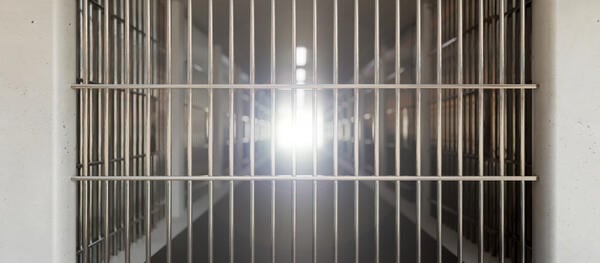
Why I Teach in Prison (opinion)
When people hear that I teach sociology in a maximum-security prison, they often ask if I’m afraid. Then they assume I enter the prison, share knowledge and transform incarcerated students. That’s not the story I’m telling. The real transformation isn’t theirs. It’s mine.
For more than a decade, I have facilitated prison programs and worked with individuals who have been impacted by the justice system. For the past three years, I have made the hour-long drive, passed barbed-wire fences, walked through metal detectors and taken the escorted journey to the education wing of a Connecticut state prison to teach college-level sociology.
My desire to work with people in prison honors those who protected me, allowing me to survive, thrive and give something back. I grew up in Harlem during the height of the crack cocaine epidemic. Public housing was my home. The stench of urine in the elevators, the hunger-inducing aroma of fried food wafting through the hallways, the ever-present sound of sirens and the fear of dying young all shaped my early years. Yet, amid these challenges, I also experienced love and protection.
Many of the older guys on my block were deeply involved in street life. However, they saw something in me. They never attempted to pull me into their activities. Instead, they ensured I stayed away. They often said, “Nah, you’re smart. You’re gonna do something with your life.” That kind of protection and love doesn’t appear in statistics or stories about the hood, but it saved me.
I didn’t make it out because I was exceptional. I made it because people believed in me. They helped me imagine a different life. I carry their love with me when I step into that prison classroom. I teach because I owe a debt—not in a way that burdens me, but in a way that allows me to walk in my purpose and see people through the same lens of possibility that allowed me to live my dreams.
Entering the prison each week requires mental preparation. Before the lesson begins, I go through multiple security checks. Doors buzz open and lock behind me. I never get comfortable with the experience, even though I know I will leave at the end of class. I often describe teaching in prison as a beautiful-sad experience. It’s beautiful because of the energy and connection in the classroom. It’s sad because many of my students may never see life beyond the gates.
These men, some of whom have already served decades, come ready to engage. We break down theories of race, class, power, socialization, patriarchy and other related concepts. We analyze films, question systems and interrogate assumptions. But what stays with me most are the unscripted moments, like when someone connects a sociological theory to their own story and says, “This sounds like what happened to me.”
One of the most unforgettable moments came during a group debate assignment. I divided the class into small groups and asked them to analyze a text using different sociological theories. I stepped back and simply observed. I saw a group of 15 men serving long sentences, passionately debating whether structural strain theory, social learning theory or a Marxist conflict perspective was the best lens for analysis. These weren’t surface-level conversations. They were sharp, layered and theoretically rigorous. At that moment, I told them, “This is what the world doesn’t get to see.”
People carry assumptions about incarcerated individuals and what they are capable of. But they don’t see these men breaking down theories, challenging one another and demonstrating intellectual brilliance. We cannot record inside the prison, so moments like this remain confined to the room. But they are real. And they matter.
Another day, I asked students to reflect on the last time they cried or heard someone say, “I love you.” One student responded, “I don’t cry. Crying doesn’t change anything.” A week later, after completing an assignment to write a letter to his younger self, that same student began reading aloud to his 8-year-old self and broke down in tears. No one laughed. No one turned away. The other men gave him their attention, encouragement and support. In that room, we created a space where his vulnerability was met with care, even inside the walls of a prison.
These experiences forced me to confront my purpose. I stopped seeing myself solely as a professor or administrator. I reflected on what it means to serve and show up for people who’ve been pushed to the edges of society. I began to question the boundaries we draw between campus and community. Universities, especially those with the most resources, need to be more than institutions of learning for those lucky enough to be admitted. We are called to be and do more.
Throughout my career, I’ve worked to ensure my spheres of influence extend beyond the edge of campus. I’ve leveraged my position to build bridges by connecting faculty and students to re-entry programs, supporting formerly incarcerated scholars and creating opportunities for others to teach inside. Teaching in prison has made me more grounded. As a sociologist, I am keenly aware of how little separates my students’ lives from mine and how my path could have easily been theirs.
The United States leads the world in incarceration, holding more than 20 percent of the world’s prisoners despite representing less than 5 percent of the world’s population. According to the Prison Policy Initiative and the American Civil Liberties Union, many incarcerated people come from overpoliced, underresourced communities like the one I grew up in.
Yet even with this reality, some argue that people in prison don’t deserve education—that offering college courses to incarcerated individuals is a misuse of resources. I’ve heard those arguments, and I reject them. Education in prison isn’t special treatment. It’s human dignity. It’s recognizing that people can and do change when given the tools to reflect, grow and imagine a life beyond a perpetual existence in survival mode.
If higher education is serious about equity and access, we cannot limit our classrooms to students with perfect transcripts and traditional résumés. The men I teach do not need saving. They need space to grow, question and contribute. And our institutions need them, because any university that claims to care about justice, resilience or humanity cannot ignore the people our country has locked away.
Every day, I am reminded that none of my accomplishments happened in isolation. I think about what it means to repay a debt on which you cannot put a dollar amount. I think about honoring those who believed in me before I believed in myself. I’ve stood on the shoulders of people who never had the opportunities I did. I carry their investment into every space I enter, especially those where others have been forgotten.
One of the lessons I’ve held onto is this: The gifts we have are not for us to keep. They’re meant to be shared. Teaching in prison is my way of honoring that truth.
Source link


